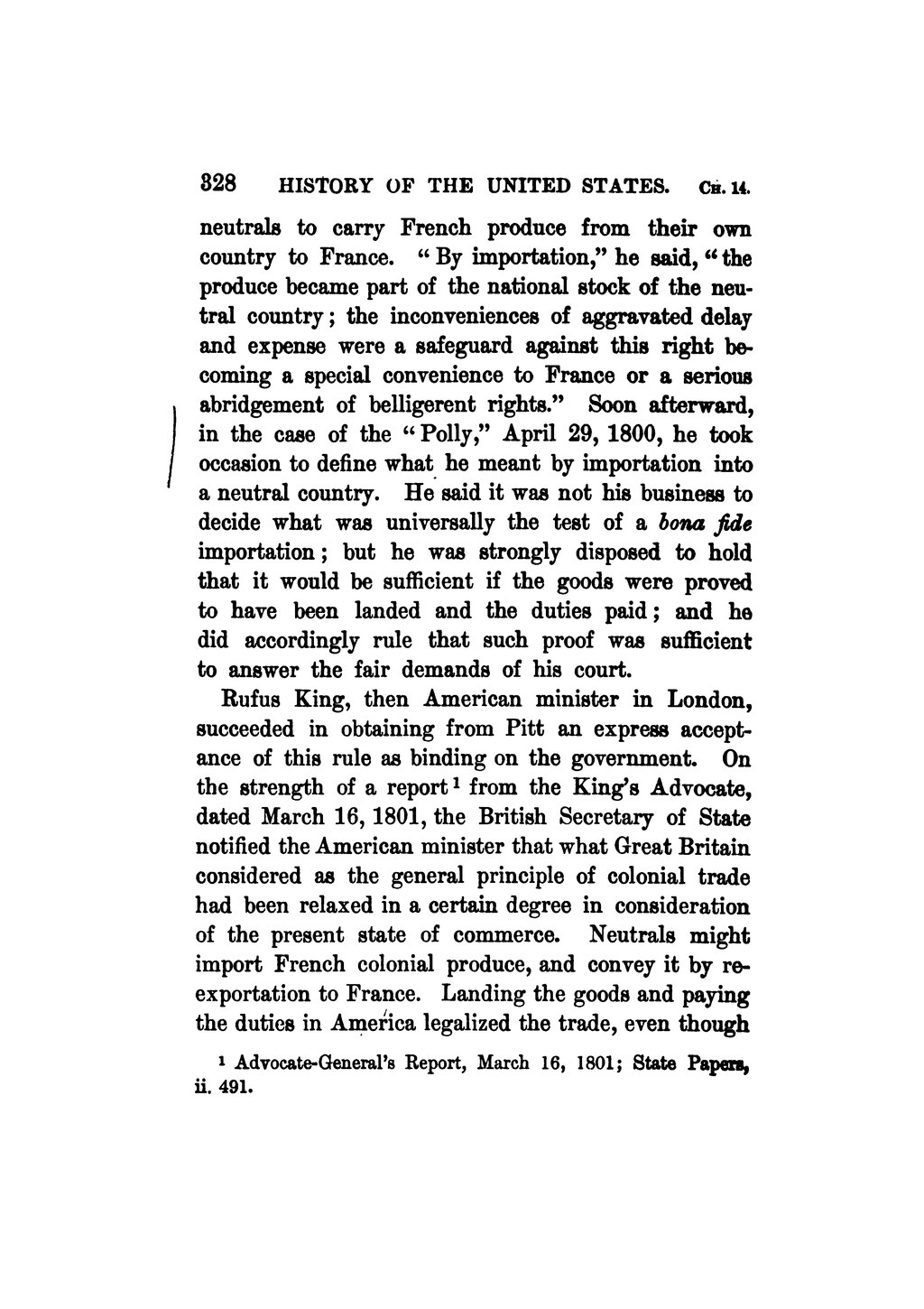neutrals to carry French produce from their own country to France. "By importation," he said, "the produce became part of the national stock of the neutral country; the inconveniences of aggravated delay and expense were a safeguard against this right becoming a special convenience to France or a serious abridgement of belligerent rights." Soon afterward, in the case of the "Polly," April 29, 1800, he took occasion to define what he meant by importation into a neutral country. He said it was not his business to decide what was universally the test of a bona fide importation; but he was strongly disposed to hold that it would be sufficient if the goods were proved to have been landed and the duties paid; and he did accordingly rule that such proof was sufficient to answer the fair demands of his court.
Rufus King, then American minister in London, succeeded in obtaining from Pitt an express acceptance of this rule as binding on the government. On the strength of a report[1] from the King's Advocate, dated March 16, 1801, the British Secretary of State notified the American minister that what Great Britain considered the general principle of colonial trade had been relaxed in a certain degree in consideration of the present state of commerce. Neutrals might import French colonial produce, and convey it by re-exportation to France. Landing the goods and paying the duties in America legalized the trade, even though
- ↑ Advocate-General's Report, March 16, 1801; State Papers, ii. 491.
